From The Soho News (February 25, 1981). One can trace some updates on my thoughts about Symbiopsychotaxiplasm: Take One over 17 years later and Killer of Sheep over 26 years later by following the links provided here. — J.R.
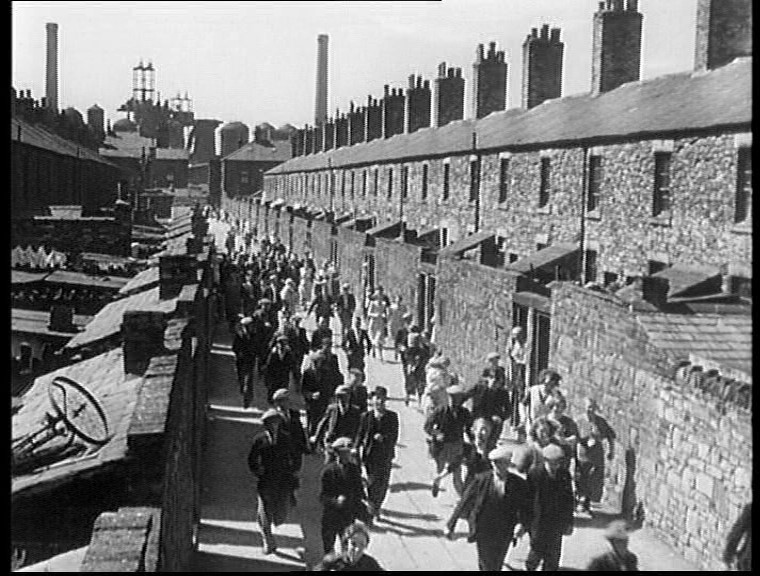
Feb. 16: A double feature of two class-conscious films directed by Carol Reed , The Stars Look Down (1939) and Kipps (1940), at Theater 80 — my first look at either movie. Trying to arrive at a plausible reverse-angle for the first movie — that is, a precise sense of its audience and context in early 1940, when Graham Greene wrote for The Spectator, “Dr. Cronin’s mining novel has made a very good film — I doubt whether in England we have ever produced a better” — I find myself hopelessly hamstrung, stuck in a narrow sort of timewarp called the present.
The problem is, I can only come up with a romantic, movie version of an English movie audience three years before I was born, a Thomas Pynchon fantasy à la Gravity’s Rainbow (whose sexy, existential London is itself very much a pungent blend of remembered movies from that period). Admittedly, Greene’s oddly familial use of first person plural tells me a little something, too. Read more
A capsule review requested by and written for MUBI’s Notebook in conjunction with an ongoing series at New York”s Film Forum. — J.R.
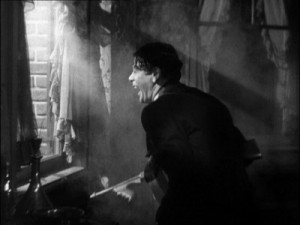
Scarface (Howard Hawks, 1932): A surprising amount of Howard Hawks’ unstable, weirdly graceful universe is informed by the imminence of death and the proximity of offscreen space, tied to the risks of tangling with sudden impulses. Few of his films are more aware of this encroaching void than Scarface, where X is made to mark the offscreen spot around every narrative corner. This frighteningly brutal black comedy, the least romantic of his crowd-pleasers — a much better gangster film than any of the Godfathers, especially when it comes to confronting reality — was made when people were far less deluded than they are today about the fact that their lives and destinies were being controlled by crooks. What makes it bleaker than Only Angels Have Wings and Rio Bravo is the small and indecisive role friendship is allowed to play in holding back the darkness; perhaps only Land of the Pharaohs betrays a comparable nihilistic bleakness. — Jonathan Rosenbaum
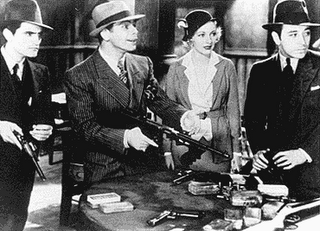 Read more
Read more
From the Chicago Reader (March 2, 1990). — J.R.
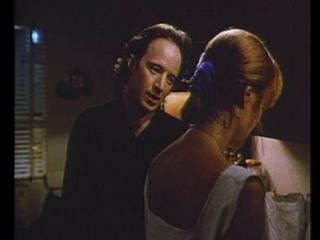
MEN DON’T LEAVE ** (Worth seeing)
Directed by Paul Brickman
Written by Barbara Benedek and Brickman
With Jessica Lange, Chris O’Donnell, Charlie Korsmo, Arliss Howard, Joan Cusack, and Kathy Bates.

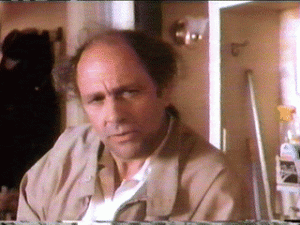
A central part of Paul Brickman’s talent as a director, apart from his skill with actors, is the use he’s made in his two features of the throbbing, semieuphoric rhythmic monotony of New Age music as a kind of figured bass to the melodic flights of his mise en scene. A master in orchestrating precise cuts, unorthodox camera angles, and camera movements that propel or embellish his story telling, Brickman may depend in part on slightly shopworn plots and familiar generic characters, at least as putative starting points. But he scores almost every time he articulates a fancy transition or highlights a telling detail, occasionally setting the story slightly adrift as he draws us into these lyrically abstract interludes. And the musical regularity of his scores — by Tangerine Dream in Risky Business (1983) and by Thomas Newman (son of Alfred and cousin of Randy) in Men Don’t Leave — tends to protect these well-crafted maneuvers, providing them with a kind of safety net (or, to alter the metaphor slightly, trampoline) from which he can make his expressive leaps. Read more
The most conspicuous absence in the following list of “the ten best films directed by women” requested by the BBC is Elaine May; clearly I should have included either Mikey and Nicky or The Heartbreak Kid.
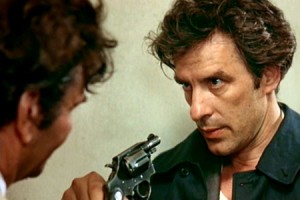
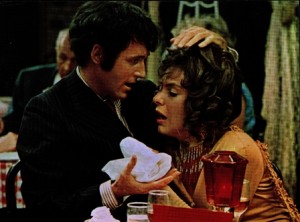
BBC: The best films directed by women:
1.The House is Black (Forugh Farrokhzad, 1963)
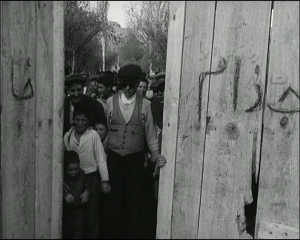
2. The Enchanted Desna (Yulia Solntseva, 1964)
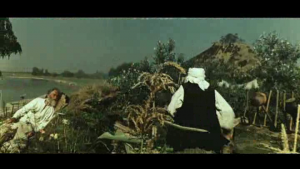
3. Mix-up ou Meli-melo (Françoise Romand, 1986)
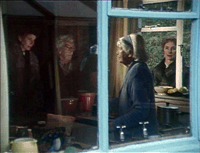
4. Vagabond (Agnès Varda, 1985)
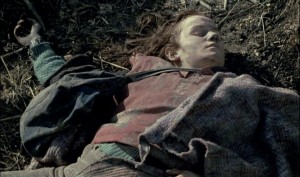
5. The Asthenic Syndrome (Kira Muratova, 1989)
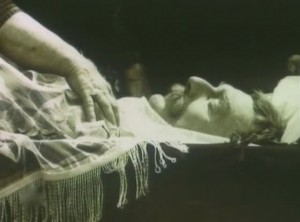
6. Sweetie (Jane Campion, 1989)
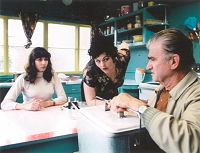
7. From the Other Side (Chantal Akerman, 2002)

8. You Are Not I (Sara Driver, 1981)
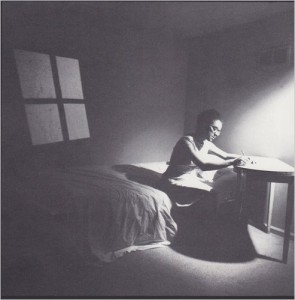
9. Daisies (Vera Chytilová, 1966)
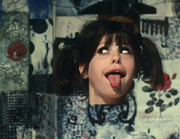
10. Aragane (Kaori Oda, 2015)
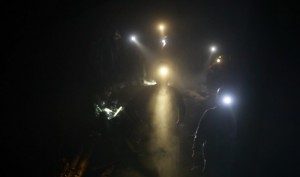
Read more
From the Chicago Reader (January 1, 1994). — J.R.
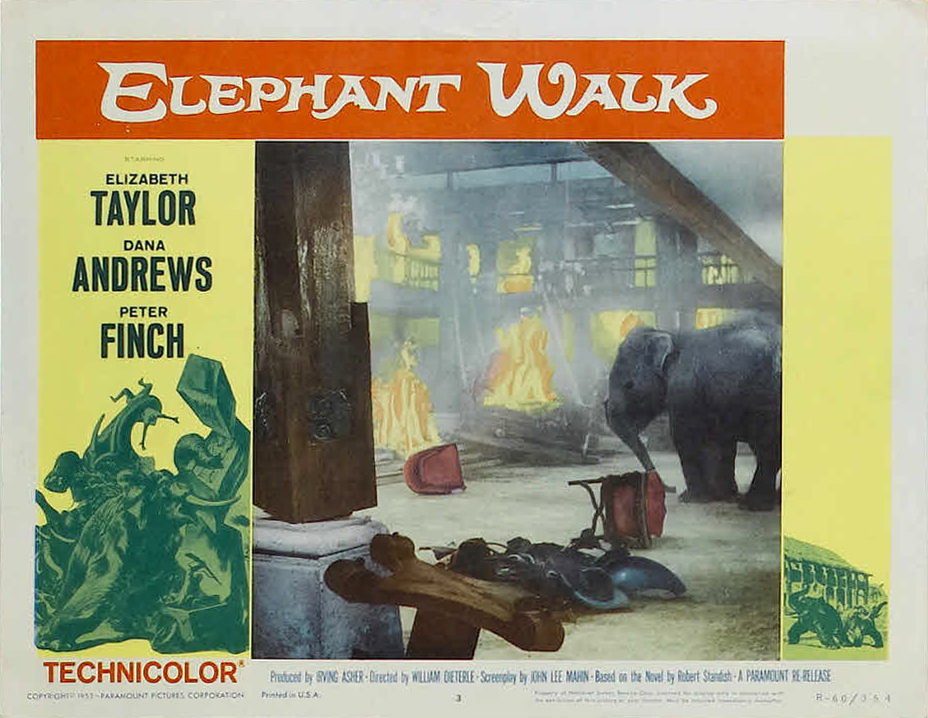
I was 11 when I saw William Dieterle’s 1954 adaptation of the Robert Standish novel Elephant Walk, which was apparently aimed at the female market, and I loved it, though I don’t know what I’d think today. A sort of gothic melodrama in Technicolor about a young bride (Elizabeth Taylor) adjusting to life on a Ceylon tea plantation and the weirdness of her husband (Peter Finch), it climaxes in an elephant stampede. Dana Andrews costars; John Lee Mahin wrote the screenplay. Vivien Leigh was originally cast in Taylor’s part; reportedly you can see her in a few long shots. 103 min. (JR)
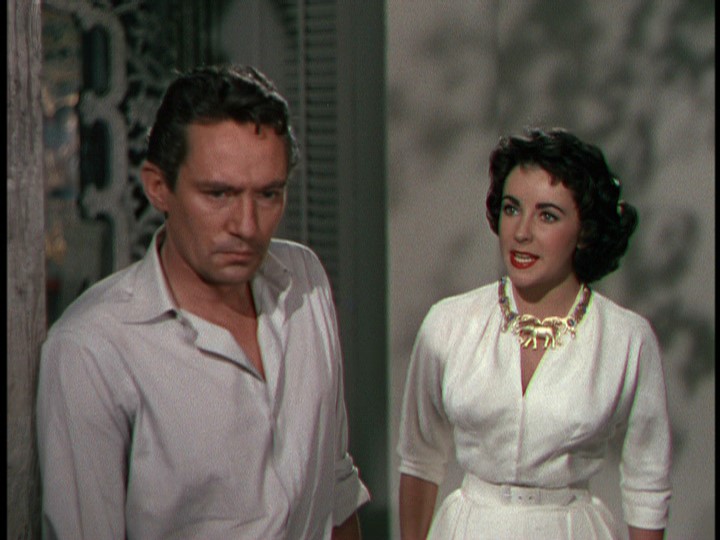 Read more
Read more




















